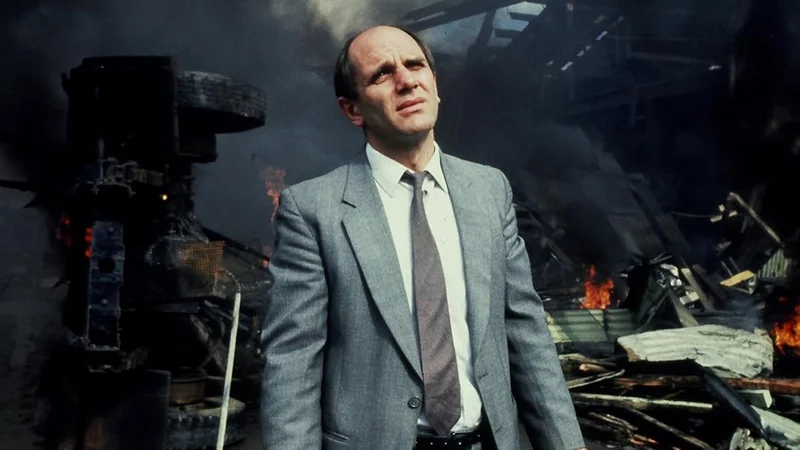
The Quiet Earth: A Forgotten Sci-Fi Masterpiece of Isolation
Before New Zealand became known for the epic landscapes of "Lord of the Rings" and even before Jane Campion's "The Piano" captivated audiences, a different kind of filmmaking was quietly flourishing. Among these gems is "The Quiet Earth," a thought-provoking science fiction drama released in 1985. The film explores a chilling scenario: a man awakens to find the world completely devoid of other people.
A World Without Others
The story centers around Zac Hobson, portrayed by Bruno Lawrence, a scientist who discovers that everyone in his vicinity, near Auckland, has vanished. Driven by fear and confusion, he investigates, eventually reaching his laboratory. This lab is part of a global network designed to create a wireless energy system. He soon realizes the horrifying truth: the experiment inadvertently wiped out humanity, seemingly leaving him as the sole survivor.
Initially, Zac indulges in the newfound freedom. He occupies a luxurious mansion, enjoys expensive cars, and revels in the finer things in life. However, the weight of his potential role in causing the global catastrophe begins to haunt him.
Unexpected Company and Growing Tensions
Just as Zac grapples with his isolation and guilt, he discovers he's not alone. He encounters Joanne, played by Alison Routledge, another survivor. Their search for others leads them to Api, portrayed by Pete Smith. The trio discovers they were all near death when the catastrophic event occurred, somehow shielding them from its effects. As a complex love triangle forms between them, Zac becomes consumed with finding a way to reverse the devastating process.

A Unique Take on a Familiar Trope
While the "last person on Earth" theme might bring to mind films like "I Am Legend" or the TV series "The Last Man On Earth," "The Quiet Earth" distinguishes itself through its unique perspective and setting. Director Geoff Murphy prioritizes character development and the exploration of human relationships over flashy special effects. The film focuses on the personal impact of the disaster rather than its global ramifications. The audience never learns if the characters succeed in reversing the experiment. The film emphasizes Zac's growing sense of responsibility for the tragedy.
The film also subtly addresses ethnic relations. Api, who is Maori, and Zac, who is white, clash over their differing views and approaches to the situation. This reflects the increasing scrutiny of race relations in New Zealand at the time. "The Quiet Earth" also dares to depict a mixed-race relationship, a rarity in New Zealand cinema during that era.

Performances and Lasting Impact
The cast delivers memorable performances. Bruno Lawrence masterfully portrays Zac's transformation from a composed scientist to a troubled and isolated figure. Alison Routledge shines as Joanne, a strong and pragmatic woman caught in a difficult situation. Pete Smith brings depth to Api, adding another layer of complexity to the dynamic. Despite some dated elements and scientific inaccuracies, "The Quiet Earth" remains a compelling and thought-provoking film. The film's exploration of human connection, personal responsibility, and the search for meaning in a desolate world continues to resonate with audiences today, solidifying its place as a memorable piece of 1980s science fiction cinema.